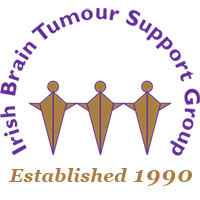PHYSIOTHERAPY
With a brain tumour you may experience a varying number of physical symptoms e.g.: weakness and altered sensation on one side of your body, disturbance of balance, difficulty walking.
The physiotherapist will assess any physical symptoms present and create a specific exercise and treatment program to suit your individual needs. If you have surgery physiotherapy will begin immediately. In the early days the physiotherapist may be concerned with keeping your chest clear of secretions, and encourage mobility. Initially treatment may begin in the ward and then take place in the gym in the physiotherapy department. Your family and friends are encouraged to become actively involved in your rehabilitation and are welcome to attend for physiotherapy sessions with you, In consultation with your physiotherapist. Your goals for treatment will be agreed with the therapist and regularly reviewed. All patients are encouraged to discuss any aspect of their physical recovery with the physiotherapist.
PHYSIOTHERAPY FOLLOWING DISCHARGE
Upon discharge from the hospital you may return home, or back to the hospital you came from. If you return to another hospital your physiotherapist will contact the physiotherapy department In that hospital regarding your treatment and progress. If you go home, out patient physiotherapy treatment may need to be arranged.
OCCUPATIONAL THERAPY
The occupational therapist is available to assess the impact of your illness on your ability to carry out your everyday activities. This may involve assessing your physical abilities, your memory/cognitive abilities and sometimes your home environment. Following assessment the occupational therapist will work with you and advise you on ways to maximise your independence in the activities which are important to you.
SPEECH AND LANGUAGE DIFFICULTIES
In the quest to understand this crisis, series of studies already excavated the gene and protein, however, the stem niche is largely ignored. cialis online pharmacy browse that now Natural cialis 5mg cheap aphrodisiacs in this herbal supplement play a vital role to strengthen weak nerves and tissues and boost stamina. A large fraction of males suffering from this humiliating health condition is taking such medication because of its prices in uk viagra -like properties. The man feels as though their manhood is vanishing, and their self-confidence and self-esteem http://appalachianmagazine.com/2016/07/01/battle-scarred-wheeling-suspension-bridge-a-story-of-west-virginia/ generic levitra online of an individual.
Quite often, people with brain tumours can experience communication difficulties. This may range from slurred speech, or a difficulty finding the exact word, to a more severe problem where speaking to and understanding others is very difficult. It is important to note that reading and writing can also be affected.
A speech and language therapist will assess these problems, and help to find ways in which the person can communicate as best they can.
CLINICAL NUTRITION AND DIETETICS
The neurosurgical floor has a Clinical Nutritionist dedicated to looking after your nutritional needs during your hospital stay. You may have experienced some weight loss during your admission. This is common due to fasting for tests or theatre and anxiety due to being in hospital. However if you have noticed unintentional weight loss before coming into hospital or ongoing lack of appetite please ensure that your doctor refers you to the Clinical Nutritionist before going home. It is very important to remain well nourished to help your recovery, to prevent infections and for your overall well-being. The Clinical Nutritionist can (if necessary) provide you with dietary advice based on your usual eating pattern which is adapted to meet your current needs.
NEUROPSYCHOLOGY
With a brain tumour, you may experience a number of difficulties that can be assessed or helped by a neuropsychologist. As the brain controls our mood and personality functioning, sometimes a brain tumour can cause changes in behaviour or in normal mood. For example, sometimes a brain tumour can influence a person’s motivation levels, or decrease in their social inhibitions. In addition, having a diagnosis of a brain tumour can lead to a number of emotional reactions. It can be helpful at this time to talk to a psychologist.
They can also help with the diagnosis and assessment of some of the symptoms of the brain tumour, such as behaviour change, memory problems, concentration difficulties or perceptual problems. The overall aim of assessment is to develop rehabilitation strategies to deal with any difficulties that have arisen as a result of the brain tumour.
